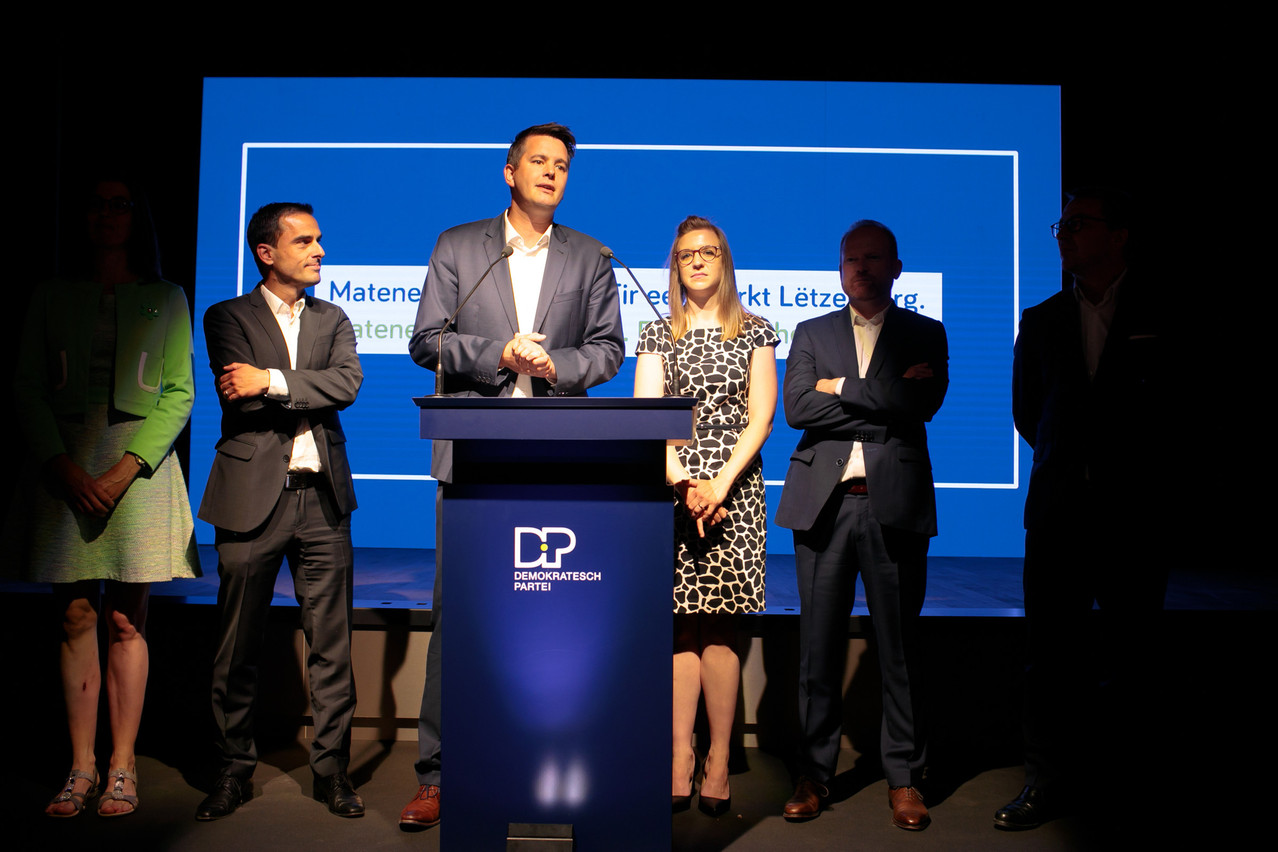The Liberal Party’s national congress on Saturday morning in the Maison du Savoir in Belval presented its framework programme--which provides a basis and inspiration for the communal chapters--as well as its campaign slogan: “No bei dir” or “Close to you.”
“This idea was born during the pandemic,” explains DP secretary general . During lockdown, local roots became very important, local businesses were indispensable, and so was solidarity between neighbours, she noted. The same was true for the war in Ukraine, with the reception of refugees.
The framework born from these circumstances is therefore organised around four pillars: living together, modernising municipalities (housing, mobility, infrastructure), energy and climate, and trade and local administration.
More cohesion
With regard to living together--the more social pillar--the DP wants to encourage community life, which is struggling to get going again after the pandemic. One of the strategies is to reach out to the youngest--via diversified reception structures--as well as the oldest--by focusing on digital courses, sports activities or associations in order to involve them in local life. The DP wants to include people of all origins, by creating new third places, such as language cafés, in order to bring cultures closer together.
The second pillar partly concerns mobility. “An important place is given to the development of cycling, lanes and parking spaces,” explains Hartmann. The DP also wants to relieve traffic in general, through bypass roads but also limited speed zones, without pavements, “where everyone has their place” and “where cars, bicycles and pedestrians can move around.”
Housing is also an area where the municipalities have “a very important role.” “Let's mobilise and build wherever we have land!” says the party. Alternative housing possibilities, alongside the classic house-apartment, are also to be put forward, such as the “tiny house” model, to be accompanied by a necessary evolution of the regulations.
Models of sustainability
Municipalities must also serve as models of sustainability, says the DP. This includes the necessary energy renovation of municipal infrastructures, such as the switch to LED lighting. The DP shows ambition on this issue: “We want to achieve energy neutrality in the municipalities in the long term,” says Hartmann. Photovoltaic projects are one example, but also district heating: the municipality of Mersch is neutral, heated with wood collected on the territory of the municipality itself.
Finally, the fourth pillar aims to develop local shops in the municipalities, but also to propose a “mobile offer” for the villages, based on the model of food trucks, but around butcher’s or baker’s shops.
The DP also wants to look into the acceleration of the digitalisation of communal services. It will also focus on greater citizen participation in major local projects, with a transparent and available administration that communicates with them. This proximity to citizens should lead to greater “cohesion between them” and, consequently, “a better quality of life in the municipalities.”
On 4 May, Paperjam will bring together representatives of the main political parties for a round table ahead of the municipal elections in Luxembourg City. .
This story was first published in French on . It has been translated and edited for Delano.
